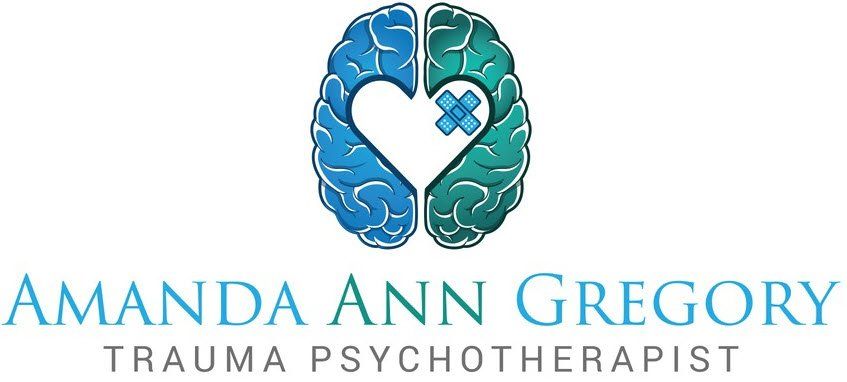Blog Layout
6 Ways to Change the Belief “I’m Not Good Enough”
I’m not good enough is one of the most harmful beliefs that I’ve come across in my career as a psychotherapist. It’s a common negative core belief that can become debilitating and deeply ingrained but can be changed.
What are negative core beliefs?
Negative core beliefs are beliefs that we have about ourselves or the world. They are often binary or all-or-nothing beliefs that leave little flexibility to adapt. Some common negative core beliefs are:
• I’m worthless.
• I’m unlovable.
• I’m inadequate.
• I’m undeserving.
• I’m unimportant.
• I’m stupid.
• I’m a failure.
• I’m powerless/helpless.
• I cannot trust myself/others.
• I have to be perfect/please others.Negative core beliefs exist and thrive in our core, gut, and instincts. They do not originate nor exist in our logical, rational minds. This is why you cannot talk yourself out of them. For example, if you have the negative core belief of “I’m not good enough,” you would believe this regardless of the evidence that proves you wrong. I’ve worked with clients with successful careers, thriving relationships, and daily evidence that they are good enough, yet they believe the opposite. It’s not uncommon for you to logically know that your negative core belief is untrue, yet you still believe it in your core.
Negative core beliefs are often shaped by past experiences. For example, if you were treated as if you weren’t good enough as a child, you may grow to believe, “I’m not good enough,” as an adult. Most of my clients who have experienced development or complex trauma believe they are not good enough. This belief becomes so deeply ingrained that it’s easy to feel that it can never be changed. Yet, it can.
Try these steps to change the negative core belief of “I’m not good enough” (or any additional negative core beliefs that you may experience):
1. Identify Your Negative Core Belief.
First, you must identify if you believe “I’m not good enough,” even if you know it’s not logically untrue. Ask yourself, do I believe I’m not good enough in my gut, my core, or my body? If so, what are some ways in which this belief is negatively impacting my life? Does it prevent me from taking risks or trying new things? Does it hinder my ability to connect with others? Does it sabotage my actions? This insight will help you change this belief.
2. Identify An Accurate Replacement Belief.
It’s helpful to identify a belief that can replace it in order to change this belief. This new belief must be logically accurate. If it’s not, you won’t believe it. For example, “I’m perfect” might not be an accurate belief, nor would beliefs that are overly positive. Instead, consider a more accurate belief, such as “I’m good enough.” Then, create an accurate definition of this belief. I’m good enough is not defined as perfection. It’s not even close to perfection. Think of a school grading system of A, B, C, D, and F. A is perfection, and C is average. I’m good enough is average; it’s a grade of a C, not a B or A.
3. Consider, Don’t Force It.
You cannot force yourself to believe your replacement belief. If you could, you would have done it already. Instead, consider it. For example, instead of saying “I’m good enough” one thousand times or trying to will it into existence, consider that it might be true and notice how you feel. It’s common to feel uncomfortable when you consider a new belief. Try to sit with that uncomfortable feeling. Imagine that every time you consider “I’m good enough,” you are planting seeds in your core as opposed to trying to force them to grow.
4. Involve your body.
Negative core beliefs live in your body. Therefore, your body must be involved when changing them. When you consider your replacement belief, notice how your body responds. Notice these physical sensations with curiosity, not judgment. Your body is not used to this new belief and it might respond with sensations that express discomfort. Sit with these sensations and see what happens. Ask your body if it needs anything, such as a stretch, a change in posture or breathing, or perhaps some patience as it gets used to this new belief.
5. Identify Evidence that Supports your Replacement Belief.
Imagine you are a scientist looking for evidence supporting the theory that you are good enough. How much evidence can you identify? Identify ALL the evidence, not just the evidence you think is important or has more value. For example, paying your rent, showering, and showing up to work might not feel like a big deal, but this is evidence that you are good enough. When looking for evidence, it’s important to remember your accurate definition of “I’m good enough,” which is average, not above average or perfect. Try creating a list of your evidence and review it many times.
6. Express Behaviors that Support Your Replacement Belief.
How would you behave if you believed “I’m good enough?” If you practice these actions you may notice that you start to believe it. For example, if you are constantly pushing yourself to achieve perfection, you might take a break because you have already proven yourself. If you rarely express your need in relationships, you might start doing so because you are just as good and worthy as those you love. Try acting in ways reinforcing the belief “I’m good enough.”
It's unlikely that any of these interventions will immediately change the belief “I’m not good enough” or any other negative core belief. It’s a process that will take both time and consistency.
Sign up for my monthly newsletter and get your Free eBook:
25 Anxiety & Trauma Coping Hacks,
sign up HERE
Amanda Ann Gregory is a trauma psychotherapist, national speaker, and author who provides specialized speaking engagements for conferences, companies, and communities. Schedule a speaking engagement
and follow on Instagram,
Facebook,
or YouTube.

By Amanda Ann Gregory
•
20 Apr, 2024
Christianity has never been the prescribed religion of the US. To state that the US is a Christian nation overlooks the rich diversity of religious beliefs and practices that exist and are celebrated in the country. These are six ways in which Christian privilege manifests in the US,
© 2024
All Rights Reserved | Amanda Ann Gregory, LCPC
Design & Consultation by Teresa Lauer, LMHC, GrowYourTherapyPractice.com *

